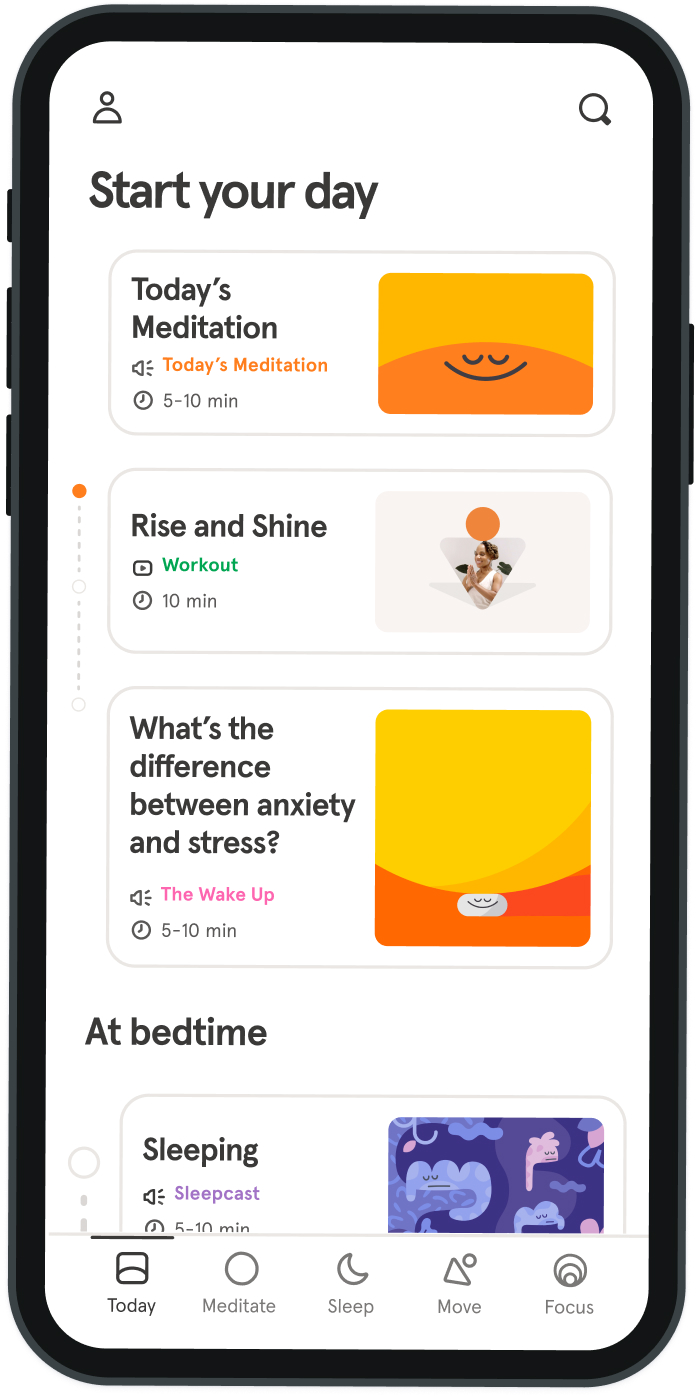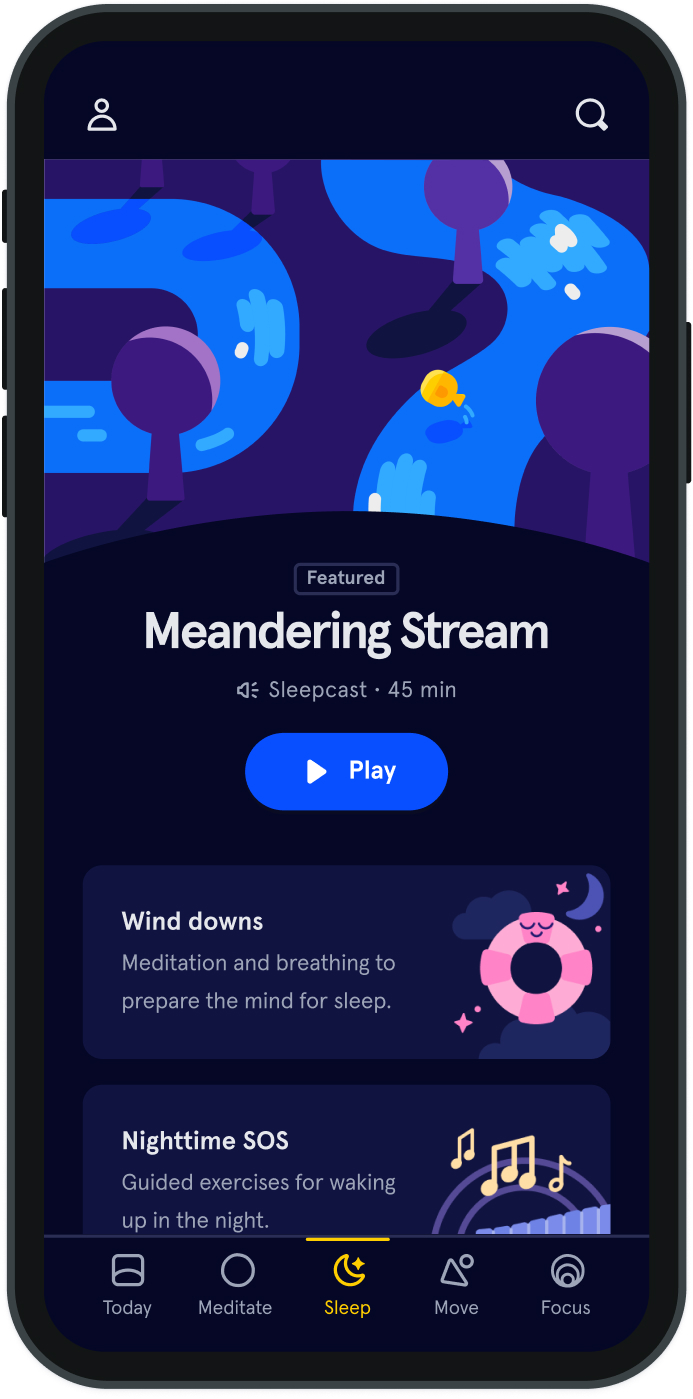Science says meditation can help kids too
Lucia Luansing-Garcia* knew that her 8-year-old son, Max, was feeling overwhelmed and distracted in school, but hadn’t yet found a solution that worked for him. Then, her son came across an app that assists with basic mindful meditation practice.
Max began using the app when feeling inundated with homework, taking a moment to sit and do breathing exercises. He asked his mom to use the app with him before bed, on nights he knew he had a project, presentation or test at school the next day. Luansing-Garcia said, “[Max] is able to control his emotions better. He doesn’t easily get frustrated when he uses mindfulness and breathing.” What stands out as most important to her is that Max can use these tools at school independently, in a place where his mom can’t be available for support or redirection. While it has been well-documented that exercise is important for healthy, growing brains, it is a newer theory that mental stillness, or mindfulness, is just as crucial. We know that meditation increases blood flow to the brain, and increases positive changes in the decision-making area of the brain. Mindfulness has a strong, positive effect on the immune system and health of the gut, which we are now learning is crucial for emotional and mental health. Harvard University reports that mindfulness increased gray matter in four sections of the brain involved with (among other functions) learning and memory. These changes are particularly exciting when viewed through the possibilities for children, whose brains are more plastic than adult brains. The book, “Handbook of Mindfulness In Education,” includes evidence from developmental neuropsychology and cognitive neuroscience that shows the potential for mindfulness to increase children’s brain functioning and positive brain structural changes.
Growing evidence shows that mindfulness practices can be a pivotal, positive action for a child having difficulty in school. A recent study showed that students with ADHD displayed “statistically significant increases from baseline (problem-solving abilities) to the meditation practice phase.” Max’s mother’s observation of his heightened emotional control correlates with the aforementioned study that shows increased cognitive function in children who practice mindfulness, as emotional control indicates increased cognitive function. This one-two punch of both elevated mood control and cognitive function appears to be an easily integrated practice for schoolchildren, with large benefits. In a study published in the Journal of Adolescence, Dr. Brian Galla of the University of Pittsburgh had groups of teenagers practice mindfulness techniques at Inward Bound Mindfulness Education over two separate summer periods of five days each. The results were clear: the teens concentrated better and felt a notable reduction in stress while experiencing more satisfaction and happiness. In addition, the results persisted; three months after the retreat, the participants were still reporting benefits. Another study in Richmond, Calif. involved a five-week Mindful Schools program and 400 low-income, largely minority elementary-school students. The benefits of regular mindfulness sessions were that students that became more focused, involved, and had better attention spans and self-control. Many schools are taking note of these kinds of findings and searching for ways to implement mindfulness programs of their own. One school in Encinitas, Calif. had a rough road toward mindfulness inclusion. The Los Angeles Times reported that just under 100 parents staged a protest over the new school budgeting, which includes a $416,000 health and wellness budget, incorporating one day of yoga a week into the school program. The concerns ranged from the worry that mindfulness was a religious practice to the idea that the money would be better spent elsewhere. The board vote was ultimately almost entirely in favor of the health and wellness budgeting plan, and the measure passed. In the Warstler Elementary School community in Plain Township, Ohio, parents with the same concerns about mindfulness and religion were successful in removing the practice from their school.
Read more: Is anxiety keeping your kid from sleeping through the night?
Mindfulness has roots in many religious practices but is not a religion. Indeed, its modern day U.S. secularism has been decried by some as going too far, losing its purpose and potency in the removal of religious aspects. It is the application of mindfulness that dictates if it has religious connotations or not, so when schools are utilizing it for brain development and emotional health, a religious connection does not exist. Regardless of if a school incorporates mindfulness or not, children can use the techniques throughout their day. Briana Kilian is a Marriage and Family intern working at Burd Psychology in San Diego. She works with children ages 5-18 and uses mindfulness as an integral part of her practice. “Another great thing about mindfulness is that a lot of the exercises are flexible and can be tailored to the child's age and needs,” Kilian tells me in an email exchange. Kilian works directly with children using mindfulness techniques, but also collaborates with schools through the teachers to incorporate some exercises into the day. She says that teachers have mentioned benefits at school such as, “increased empathy for others, decreased aggression, improved focus and self-compassion, and more awareness and acceptance [of] feelings and experiences.” Mindfulness has so many proven benefits that at this point, it’s more about studies to define the stretch and depth of those benefits. Meanwhile, if our children’s schools do not provide a chance for practice, parents at home can easily do so. Using a mindfulness guide or simply sitting with your child on a regular basis and practicing mindfulness can go a long way toward your child’s success at school and beyond.
*Name has been changed.



Be kind to your mind
- Access the full library of 500+ meditations on everything from stress, to resilience, to compassion
- Put your mind to bed with sleep sounds, music, and wind-down exercises
- Make mindfulness a part of your daily routine with tension-releasing workouts, relaxing yoga, Focus music playlists, and more
Meditation and mindfulness for any mind, any mood, any goal

Stay in the loop
Be the first to get updates on our latest content, special offers, and new features.
By signing up, you’re agreeing to receive marketing emails from Headspace. You can unsubscribe at any time. For more details, check out our Privacy Policy.
- © 2025 Headspace Inc.
- Terms & conditions
- Privacy policy
- Consumer Health Data
- Your privacy choices
- CA Privacy Notice
